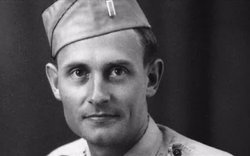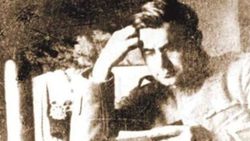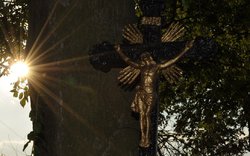Navigace: Tematické texty O Osobnosti, svatíJan Nepomuk Neumann Kázání papeže Pavla VI. při svatořečení sv. Jana Nepomuckého Neumanna (EN / It / DE)
Kázání papeže Pavla VI. při svatořečení sv. Jana Nepomuckého Neumanna (EN / It / DE)
Kázání papeže Pavla VI. při svatořečení sv. Jana Nepomuckého Neumanna v neděli 19.6.1977. Text byl pronesen v angličtině, italštině a krátce také v němčině. Zde text přinášíme v původním znění. Překlad do češtiny naleznete zde.
CANONIZATION OF JOHN NEPOMUCENE NEUMANN
HOMILY OF PAUL VI
Sunday, 19 June 1977
Saint John Nepomucene Neumann
receives the honor of one who lives in the glory of Christ
Greetings to you, Brethren, and sons and daughters of the United States of America! We welcome you in the name of the Lord!
The entire Catholic Church, here, at the tomb of the Apostle Peter, welcomes you with festive joy. And together with you, the entire Catholic Church sings a hymn of heavenly victory to Saint John Nepomucene Neumann, who receives the honor of one who lives in the glory of Christ.
In a few brief words we shall describe for the other pilgrims some details of his life, which are already known to you.
Giovanni Nepomuceno Neumann
era un immigrato europeo oriundo della Boemia
nato a Prachatitz, educato anche a Praga
Sia gloria al Signore che concede a noi la gioia di potere dichiarare Santo il Vescovo di Filadelfia, negli Stati Uniti d’America, Giovanni Nepomuceno Neumann, già da noi insignito del titolo di Beato il 13 ottobre 1963. Sia onore alla Chiesa Cattolica Statunitense che inserisce nell’albo dei Santi il suo primo campione! Richiamiamo qualche dato biografico. Giovanni Nepomuceno Neumann era un immigrato europeo oriundo della Boemia, nato a Prachatitz, il 28 marzo 1811, educato nel Seminario di Budéjovice, che apparteneva allora all’Impero Austro-Ungarico, e poi a Praga, dove completò gli studi teologici. Essendogli stata differita l’ordinazione per l’eccessivo numero di alunni avviati al Sacerdozio, il giovane Neumann si recò a Strasburgo associandosi ad un progetto di missioni per l’America, vagò a Parigi, poi a Le Havre, donde partì, povero e solo per New York. Qui il Vescovo di allora, Monsignor Dubois, lo ordinò Sacerdote, il 25 giugno del 1836. Qui, nella regione delle cascate del Niagara, a Williamsville, poi a North Bush, rimase quattro anni, tutto dedicato al ministero sacerdotale per i boscaioli. Il desiderio di perfezione e di vita comunitaria lo portò ad entrare tra i Redentoristi d’origine italiana, sempre dedicando di preferenza il suo ministero agli emigranti di lingua tedesca, dapprima a Baltimora, ove emise i voti religiosi, poi a Pittsburgh, ove fu chiamato a reggere la Casa, che i Redentoristi vi avevano aperto. Per tre anni Pittsburgh fu la sua residenza, con impegni molteplici. Tornato a Baltimora, vi esercitò il ministero parrocchiale nella chiesa di Sant’Alfonso, quale primo parroco redentorista di America, sempre primo al lavoro e al sacrificio, sempre ultimo al riposo, sempre modello di regolare osservanza religiosa.
Superando difficoltà d’ogni genere riuscì
a fondare circa cento scuole cattoliche,
instancabile nelle visite pastorali,
a contatto col popolo povero e laborioso.
Qui dovette accettare, nel 1852, la nomina alla sede vescovile di Filadelfia. Le nuove responsabilità raddoppiarono il suo zelo pastorale. Superando difficoltà d’ogni genere riuscì a fondare circa cento scuole cattoliche, instancabile nelle visite pastorali, a contatto col popolo povero e laborioso. Fondò a Filadelfia la prima Parrocchia Italiana, dedicata alla Santa Fiorentina Maria Maddalena de’ Pazzi, ed avviò la costruzione della monumentale Chiesa Cattedrale. Fu in Italia, nel 1854 per la proclamazione del dogma dell’Immacolata, e fece visita al suo Paese d’origine. Scrisse varie opere, tra cui un celebre Catechismo, molte volte ripubblicato. Mori, stroncato da un improvviso malore the lo colse per strada il 5 gennaio 1860; non aveva ancora 49 anni. E sepolto nella Chiesa di S. Pietro a Filadelfia. Ed ora egli vive nella comunione dei Santi, nella gloria di Cristo.
With Augustine he knew that our hearts are restless,
until they rest in the Lord
We ask ourselves today: what is the meaning of this extraordinary event, the meaning of this canonization? It is the celebration of holiness. And what is holiness? It is human perfection, human love raised up to its highest level in Christ, in God.
At the time of John Neumann, America represented new values and new hopes. Bishop Neumann saw these in their relationship to the ultimate, supreme possession to which humanity is destined. With Saint Paul he could testify that “all are yours, and you are Christ’s, and Christ is God’s” (1 Cor. 3, 22). And with Augustine he knew that our hearts are restless, until they rest in the Lord (S. AUGUSTINI Confessiones, 1, 1).
His love for people was authentic brotherly love. It was real charity: missionary and pastoral charity. It meant that he gave himself to others. Like Jesus the Good Shepherd, he lay down his life for the sheep, for Christ’s flock: to provide for their needs, to lead them to salvation. And today, with the Evangelist, we solemnly proclaim : “There is no greater love than this: to lay down one’s life for one’s friends” (Io. 15, 13).
John Neumann’s pastoral zeal
was manifested in many ways
John Neumann’s pastoral zeal was manifested in many ways. Through faithful and persevering service, he brought to completion the generosity of his initial act of missionary dedication. He helped children to satisfy their need for truth, their need for Christian doctrine, for the teaching of Jesus in their lives. He did this both by catechetical instruction and by promoting, with relentless energy, the Catholic school system in the United States. And we still remember the words of our late Apostolic Delegate in Washington, the beloved Cardinal Amleto Cicognani: “You Americans”, he said, “possess two great treasures: the Catholic school and the Confraternity of Christian Doctrine. Guard them like the apple of your eye” (Cfr. Epistola 2 iunii 1963).
He transmitted the healing power of the Redeemer.
He was close to the sick; he was at home with the poor;
he was a friend to sinners
And who can fail to admire all the loving concern that John Neumann showed for God’s people, through his priestly ministry and his pastoral visitations as a Bishop? He deeply loved the Sacramental of Reconciliation: and like a worthy son of Saint Alphonsus he transmitted the pardon and the healing power of the Redeemer into the lives of innumerable sons and daughters of the Church. He was close to the sick; he was at home with the poor; he was a friend to sinners. And today he is the honor of all immigrants, and from the viewpoint of the Beatitudes the symbol of Christian success.
John Neumann bore the image of Christ. He experienced, in his innermost being, the need to proclaim by word and example the wisdom and power of God, and to preach the crucified Christ. And in the Passion of the Lord he found strength and the inspiration of his ministry: Passio Christi conforta me!
The Eucharistic Sacrifice was the center of his life, and constituted for him what the Second Vatican Council would later call “the source and summit of all evangelization” (Presbiterorum Ordinis, 5). With great effectiveness, through the Forty Hours Devotion he helped his parishes become communities of faith and service.
The greatest and the first commandment is this:
“You shall love the Lord your God” (Matth. 22, 36).
But to accomplish his task, love was necessary. And love meant giving; love meant effort; love meant sacrifice. And in his sacrifice, Bishop Neumann’s service was complete. He led his people along the paths of holiness. He was indeed an effective witness, in his generation, to God’s love for his Church and the world.
There are many who have lived and are still living the divine command of generous love. For love still means giving oneself for others, because Love has come down to humanity; and from humanity love goes back to its divine source! How many men and women make this plan of God the program of their lives! Our praise goes to the clergy, religious and Catholic laity of America who, in following the Gospel, live according to this plan of sacrifice and service. Saint John Neumann is a true example for all of us in this regard. It is not enough to acquire the good things of the earth, for these can even be dangerous, if they stop or impede our love from rising to its source and reaching its goal. Let us always remember that the greatest and the first commandment is this: “You shall love the Lord your God” (Matth. 22, 36).
True humanism in Christianity. True Christianity-we repeatis the sacrifice of self for others, because of Christ, because of God. It is shown by signs; it is manifested in deeds. Christianity is sensitive to the suffering and oppression and sorrow of others, to poverty, to all human needs, the first of which is truth.
Our ceremony today is indeed the celebration of holiness. At the same time, it is a prophetic anticipation-for the Church, for the United States, for the world-of a renewal in love: love for God, love for neighbor.
And in this vital charity, beloved sons and daughters, let us go forward together, to build up a real civilization of love.
Saint John Neumann, by the living power of your example and by the intercession of your prayers, help us today and for ever.
Mächtiger Fürsprecher
und sicherer Führer zur ewigen Heimat
Einen besonders herzlichen Willkommensgruß richten Wir bei dieser denkwürdigen Feier such an die anwesenden Gläubigen aus dem Geburtsland des neuen Heiligen Johannes Nepomuk Neumann.
Sein Wahlspruch »Passio Christi conforta me« - »Leiden Christi stärke mich« - offenbart uns das Geheimnis seines Lebens und die unversiegbare Kraftquelle seines so fruchtbaren und heiligmäßigen Wirkens.
Möge der heilige Missionar und Bischof Johannes Nepomuk Neumann gerade such Ihnen, seinen Landsleuten, in Prüfung und Not fortan mächtiger Fürsprecher und sicherer Führer zur ewigen Heimat sein!
Zdroj: https://www.vatican.va/content/paul-vi/en/homilies/1977/documents/hf_p-vi_hom_19770619.html
Redakčně upraveno - mezititulky, nadpis...





